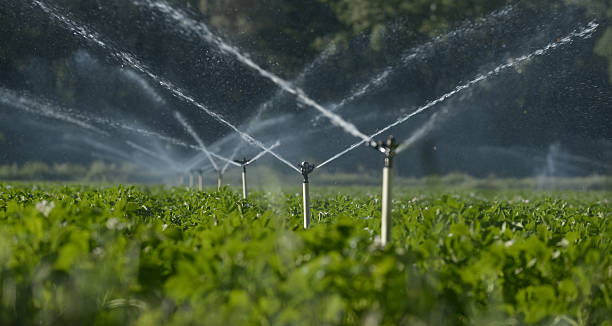Agriculture Can Transform Jamaica’s Economy – Dr. Smith
Caribbean Development Bank (CDB) President, Dr. Warren Smith, believes agriculture can potentially transform Jamaica’s economy into one that engenders growth and prosperity.
The sector is one of two, deemed pivotal to the Government’s economic growth and job creation agenda, which has benefited from significant CDB funding support. The other is the micro, small and medium-size enterprise (MSME) sector.
Dr. Smith tells JIS News that the CDB’s input in agriculture has been undertaken through the provision of US$8.1 million in 2012 to fund the first phase implementation of the Government’s National Irrigation Development Plan.
He explains that the undertaking entailed development of the irrigation systems in the farming communities of Hounslow and Pedro Plains in St. Elizabeth, and Sevens River in St. James. The inputs included the establishment of wells, and installation of pumps and pipelines, among other equipment and infrastructure.
A total of 391 farmers, comprising 313 men and 78 women, are now benefiting from the provisions at Hounslow, where 360 hectares of land are under cultivation.
An additional 656 farmers are benefiting in Pedro Plains, where another 360 hectares are being cultivated by that group, comprising 461 men and 195 women.
Thirty-two acres are being cultivated in Sevens River by the 76 beneficiary farmers, consisting of 61 men and 15 women.
In noting that these are “key agricultural areas”, Dr. Smith says the CDB has also financed the provision of technical support for the farmers, to better enable them to achieve maximum yields from their crops.
He points out that the overall objective of CDB’s input is to improve the productivity and competitiveness of a wide range of agricultural commodities. “We feel that agriculture can lead to the transformation of Jamaica, economically and socially; and we expect it to be a big part of the growth strategy of the country,” the CDB President states.
Meanwhile, Dr. Smith advises that the CDB is in discussion with the Government about the proposed development of another irrigation system in Essex Valley, St. Elizabeth, where approximately 700 hectares of lands are being cultivated by farmers.
He hints that this project could be financed from the £300 million Infrastructure Fund that was committed to by the government of British Prime Minister, Rt. Hon. David Cameron. This, he indicates, should be verified following a meeting of the CDB’s Board to discuss the matter shortly.
In the meantime, Dr. Smith is endorsing the Government’s agro-park initiative, which he describes as an “excellent idea” that should be further “deepened and broadened.”
“We need to ensure that a full suite of infrastructural support is in place, including good roads, irrigation, access to fertilizers, storage, agro-industrial links…and all of the other inputs required,” he outlines.
In relation to the MSME sector, Dr. Smith, tells JIS that a US$15 million line of credit was approved in 2014 for disbursement to that group through the Development Bank of Jamaica (DBJ), which serves as the funding institution’s intermediary.
This, he says, will benefit 15 stakeholders whose operations meet the stipulated criteria.
“They have to be export-oriented, predisposed to saving foreign exchange, and demonstrate a commitment to improving energy efficiency, among other requirements,” he outlines.
The CDB President says more than one-third of the funds, totalling US$5.8 million, have been disbursed to small and medium business operators.
He anticipates that this undertaking will enhance growth within the private sector and “should assist with Jamaica’s economic recovery (by) creating new employment opportunities and increased productivity.”
Another notable project that was funded by the CDB is the Washington Boulevard Improvement Project in Kingston.
This was undertaken at a cost of US$23 million, of which the CDB provided loan support of US$15 million.
The project entailed improvements along the 2.75 kilometre roadway between the Washington Boulevard/Molynes Road and Dunrobin Avenue/Constant Spring Road intersections.
Works carried out included: widening of the roadway; installation of additional traffic signals, LED street lights and other pedestrian facilities; drainage and bridge improvements; and dedicated lanes for Jamaica Urban Transit Company (JUTC) buses.
In noting that this roadway is one of the busiest in the Kingston Metropolitan Area, Dr. Smith says traffic levels are estimated to be in excess of 53,000 motor vehicles per day.
Additionally, he says the roadway also carries the highest number of persons commuting into and out of Kingston via public passenger vehicles.
“The improvements have reduced congestion and motor vehicle operating costs, and improved commuting time,” the CDB President notes.
Additionally, he says the dedicated bus lanes have enabled the JUTC to “operate more efficiently and have more flexibility in their route management.”
Other benefits, Dr. Smith further points out, include: reduced flooding; and an estimated 50 per cent reduction in electricity costs consequent on the installation of the LED lights.



